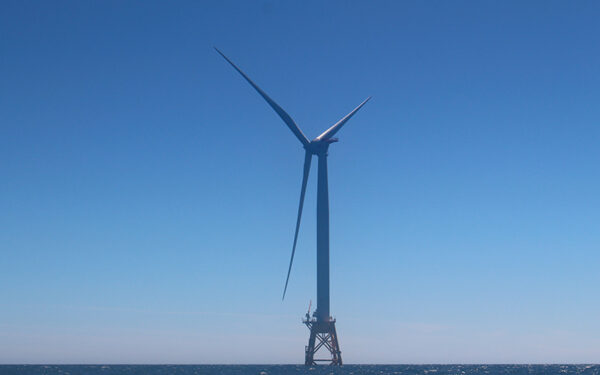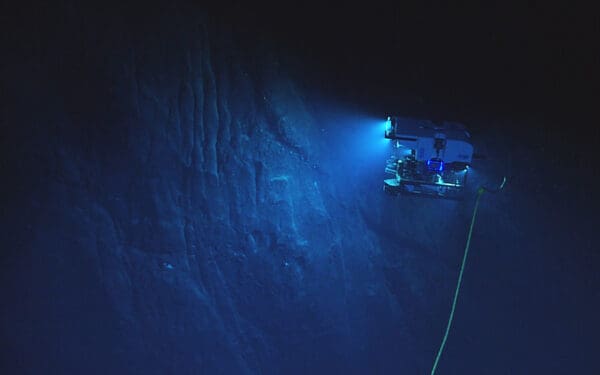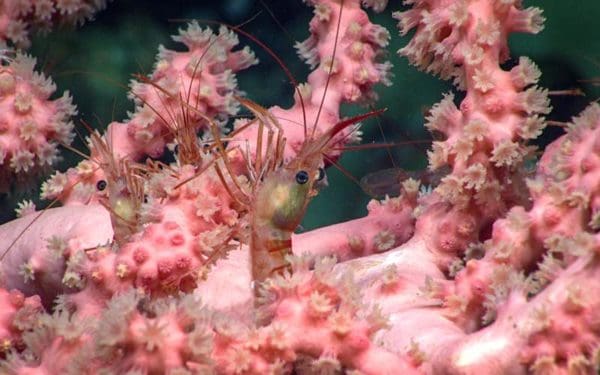
By revoking the National Ocean Policy and replacing it with a new directive focused on exploitation, the Trump administration is continuing its attack on the environment. Photo: EcoPhotography
Last week, President Trump stripped our nation of its policy of ocean stewardship and replaced it with one of maximum ocean exploitation. In an executive order, Trump revoked the nearly decade old National Ocean Policy established by President Obama in 2010.
With this reckless move, Trump is focusing ocean management on short-term economic development, energy security, and global competitiveness – a myopic approach that ignores the long-term health of our coastal economies and ocean resources.
We can’t yet predict the full ramifications of Trump’s policy change, but his administration’s proposed opening of U.S. ocean waters to oil and gas development and his threats to land and marine monuments are clear indicators of where this administration’s priorities lie.
Trump’s Policy Undermines Years of Work and Collaboration to Create Regional Ocean Plans
The Obama administration created the landmark National Ocean Policy in 2010 in response to the growing demands being placed on our marine resources. The policy recognized the need to be smarter about how we collectively use, manage, and, most importantly, protect our oceans, coasts, and the Great Lakes, including through better coordination and decision making among federal and state agencies and public and private stakeholders.
A hallmark of the policy was the development of comprehensive, science-based ocean plans for the entire country, with the Northeast leading the way. The process brought together representatives from states, tribes, federal agencies, and fisheries management as part of a Northeast Regional Planning Body tasked with creating the plan. Over four years, the planning body conducted thorough research, dialog, and public input, including from a diverse set of stakeholders including renewable energy developers, marine scientists, environmental groups, and recreation and commercial fishermen, among many others.
Finalized in 2016, the Northeast Ocean Plan committed our region, on every level, to an unprecedented level of collaboration and coordination between the people and agencies whose work revolves around our waters.
CLF is proud to have played a key role in moving the Northeast planning process forward, having been involved in state-level ocean planning for nearly 20 years.
Trump’s Policy Claims It Will Eliminate Bureaucracy, But Leaves Many Questions Unanswered
Trump’s executive order keeps some of the key tenets of smart ocean planning, including interagency coordination, the compilation and use of the best data and science in decision making, and meaningful stakeholder engagement. However, the regional bodies created under the National Ocean Policy to implement ocean planning are gone. Instead, Trump’s order recognizes existing state and federal ocean partnerships – including the Northeast Regional Ocean Council – as entities that will carry forward this work.
We can hope that all of the work and coordination done through the Northeast Ocean Plan will ensure that those partnerships are effective and efficient in moving forward this critical initiative. But what weight will the federal agencies now give to the Northeast Ocean Plan? And what about in the rest of the country, where plans have not been developed or approved? And which stakeholder voices will now be silenced because they are not represented through these state and federal partnerships? As has been the case with many presidential executive orders of late, these questions and others remain unanswered, leaving those of us working in the trenches uncertain of how this new era of ocean planning will unfold.
The Real Motivation Behind this New Order? Oil and Gas Exploration.
A critical difference between the Obama-era policy and Trump’s is the latter’s emphasis on domestic energy production over stewardship. With the repeal of the National Ocean Policy, President Trump is shifting the balance away from the long-term health and vitality of our oceans in favor of maximum short-term exploitation. In fact, the word “stewardship” is used only once in the new executive order, and it’s in the context of revoking the 2010 policy.
While we don’t know how, exactly, this new policy will play out in in our region, we do know that the people of New England stand behind our collaborative plan and the science and data that provide its crucial underpinnings, and we are committed to continuing the good work that’s been done.
As we move into uncharted and less conservation-minded waters, CLF will hold the Trump administration accountable for the health of our ocean and the diversity of wildlife that call it home. We remain deeply committed to advancing responsible stewardship of our ocean waters, despite this administration’s reckless actions.



